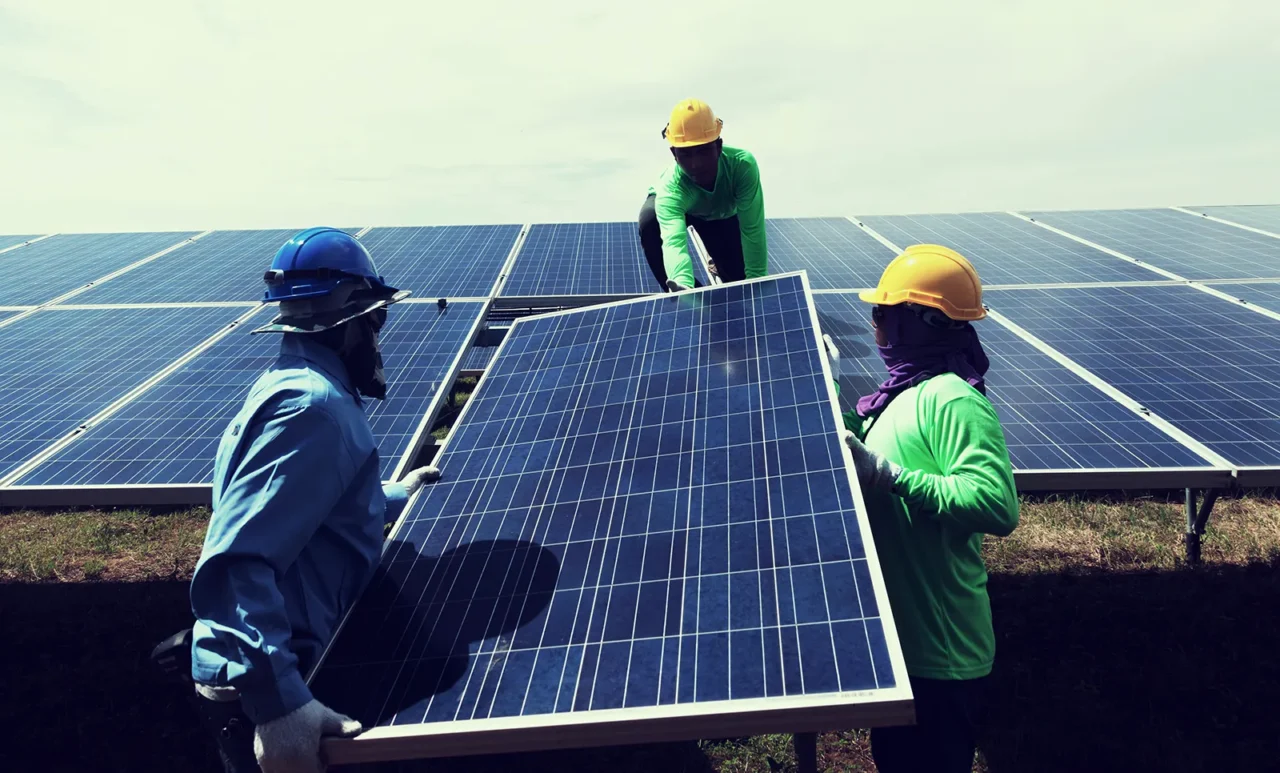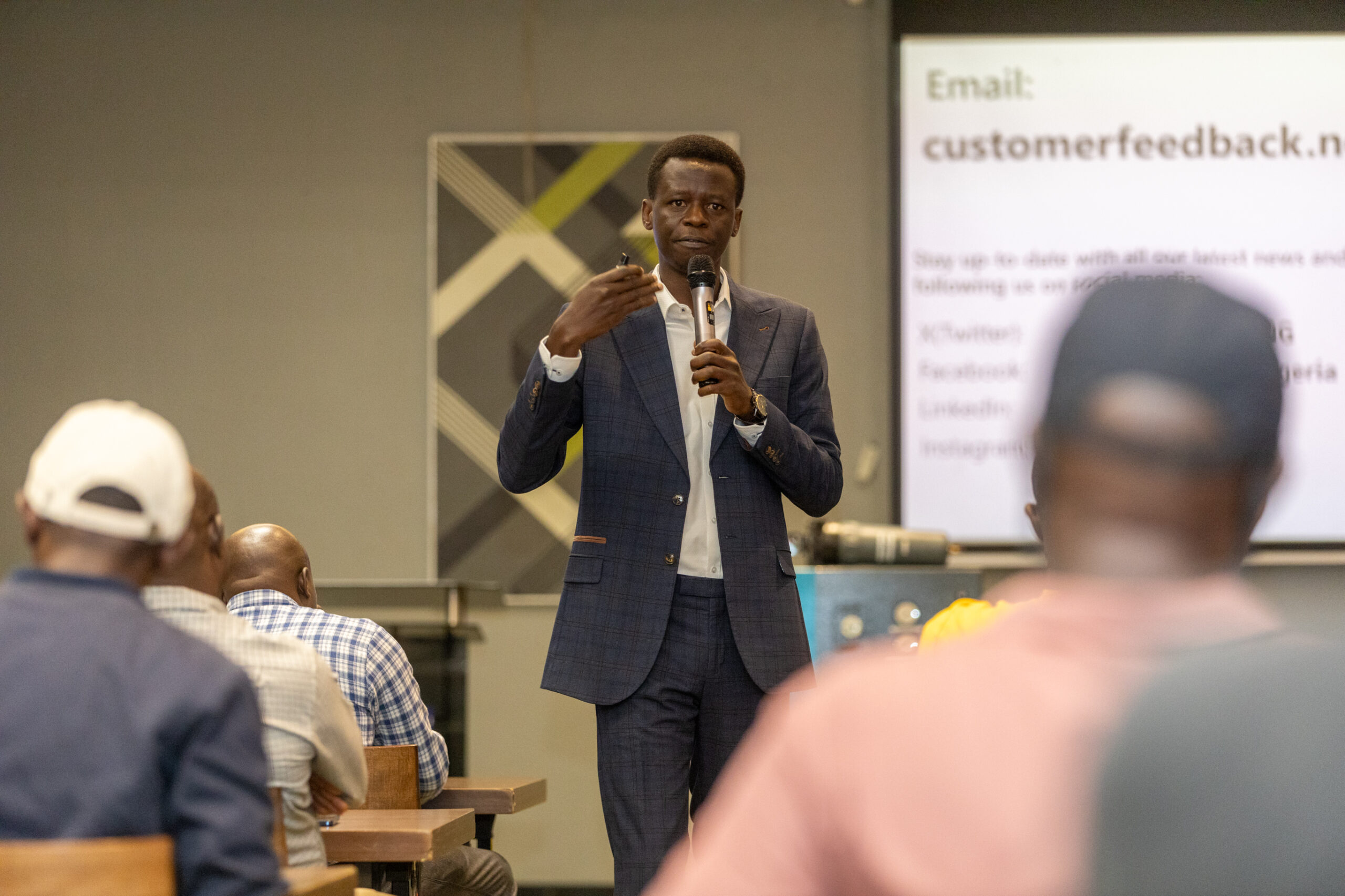
Osinor Oshiobor, CEO/Managing Director, Verysure Energy Limited
In the heart of Africa lies a nation abundant with resources and untapped potential—Nigeria. For decades, the country has leaned heavily on its oil reserves, earning its place as “Africa’s largest oil producer.” However, as the global focus shifts toward sustainable energy, Nigeria faces a critical crossroads: to remain reliant on finite fossil fuels or to embrace renewable energy. The path it chooses will shape not just its energy sector but the very fabric of its economy, environment, and society.
Despite being rich in energy resources, Nigeria’s energy reality is paradoxical. According to the World Bank, over 85 million Nigerians—nearly 43% of the population—still live without access to electricity. The national grid, known for its unreliability, is plagued by frequent blackouts that disrupt daily life and hinder economic activities. This has led to a widespread reliance on diesel and petrol generators, which not only burden households and businesses financially but also exacerbate environmental pollution. This stark energy deficit prompts a crucial question: how can Nigeria transition from energy scarcity to abundance while meeting the demands of sustainability?
Renewable energy offers a powerful solution. Solar, wind, hydro, and biomass energy sources are abundant in Nigeria and have the potential to redefine its energy landscape. Solar energy, in particular, stands out as a game-changer. With an average of 2,600 hours of sunlight per year, Nigeria is uniquely positioned to harness solar power. Regions such as the north and southwest, where sunlight is especially consistent, present immense opportunities for large-scale solar energy generation. Technological advancements and declining costs of photovoltaic systems have further enhanced accessibility, making solar power more affordable for individuals and businesses alike.
The benefits of solar energy extend beyond homes to businesses and communities. Entrepreneurs—such as tailors, barbers, and farmers—are increasingly adopting solar-powered equipment like sewing machines, refrigerators, and irrigation systems. These tools are enabling businesses to operate more efficiently, lower their costs, and expand their reach. Additionally, solar microgrids are transforming rural communities by providing decentralized, sustainable energy. These systems ensure a reliable power supply, enhance the quality of life, and create opportunities for local industries to thrive.
Solar power is also making a profound impact on critical infrastructure. In remote areas, solar-powered clinics now have uninterrupted electricity to support vaccine refrigeration, lighting, and essential medical equipment. Schools equipped with solar power can integrate modern teaching aids, lighting, and computers, vastly improving the learning environment for students.
While solar energy has been at the forefront of Nigeria’s renewable energy efforts, wind energy is another promising resource. Northern regions and coastal areas, with their strong and consistent winds, are prime locations for wind power development. Pilot projects, such as the wind farm in Katsina State, demonstrate the feasibility and potential of wind energy as a complement to solar power. Wind turbines can generate electricity during cloudy or rainy seasons when solar power production decreases, ensuring a more consistent and balanced renewable energy supply. Expanding wind energy projects in regions like Kano, Katsina, Lagos, and Delta could significantly boost Nigeria’s energy capacity while creating jobs and reducing its carbon footprint.
Hydropower, an already established resource, also holds significant promise. Nigeria is home to numerous rivers, and the potential for small and large-scale hydroelectric projects is vast. While large dams like the Kainji Dam have long been a part of the country’s energy infrastructure, there is increasing interest in mini and micro-hydro projects to electrify rural areas. These smaller systems can deliver reliable power to off-grid communities while minimizing the environmental and social impacts often associated with large-scale dams.

Biomass energy, derived from agricultural waste and other organic materials, is another avenue worth exploring. Nigeria’s agricultural sector produces a significant amount of waste that often goes unused or is burned, contributing to air pollution. By converting this waste into energy through biogas systems or biomass power plants, Nigeria can address its energy deficit while reducing environmental pollution and creating new economic opportunities for farmers.
The renewable energy sector is not only an environmental imperative but also a massive economic opportunity. It has the potential to create millions of jobs across various areas, from the manufacturing and installation of solar panels to research and development in energy-efficient technologies. Encouraging local production of renewable energy components could stimulate industrial growth while exporting these components positions Nigeria as a leader in Africa’s renewable energy market.
Reliable energy access is transformative. For small and medium-sized enterprises (SMEs), which form the backbone of Nigeria’s economy, affordable and steady power supplies reduce operational costs, boost productivity, and spur innovation. A stable energy infrastructure would also attract foreign investment, revitalize industries, and accelerate GDP growth. Beyond the economy, access to clean and dependable energy can significantly improve the quality of life. Solar-powered health clinics can reduce maternal and infant mortality rates by ensuring critical medical equipment operates consistently. Electrified schools provide better learning environments, enabling the integration of digital tools and modern teaching methods. Well-lit streets powered by renewable energy enhance safety and foster a sense of security within communities.
Renewable energy is also a powerful tool for addressing social inequalities, particularly for women in rural areas. Many households still rely on firewood for cooking, which not only contributes to deforestation but also endangers the health of women and children through prolonged exposure to harmful smoke. Clean energy solutions, such as solar cookers and biogas systems, eliminate these risks while freeing women to pursue education, entrepreneurship, and leadership opportunities. Solar-powered water pumps further alleviate the burden of fetching water from distant sources, enabling women and girls to reclaim their time for personal development and community engagement.
Despite its promise, Nigeria’s renewable energy journey is not without challenges. High initial costs for renewable energy projects remain a significant hurdle, particularly given the country’s economic instability and rising public debt. International financing mechanisms, such as green bonds and concessional loans, could help bridge this gap. Encouraging private-sector participation through tax incentives, grants, and subsidies could further stimulate investment in the sector.
Another major challenge lies in the nation’s aging and fragmented energy infrastructure. Many renewable energy projects must operate off-grid, which, while effective for rural areas, can be expensive and difficult to scale. A comprehensive upgrade of the national grid, with the integration of renewable sources, would provide long-term stability and efficiency. Policy inconsistencies and bureaucratic delays also hinder progress, discouraging potential investors. Streamlining regulatory processes and ensuring continuity in energy policies across administrations are essential to building investor confidence and sustaining momentum in the sector.
Education and workforce development are equally critical. Investing in vocational training, scholarships, and international partnerships can create a skilled labor force capable of supporting and maintaining renewable energy initiatives. Building local expertise will not only ensure project sustainability but also foster innovation and self-reliance within the industry.
Nigeria’s renewable energy potential also extends to regional and global leadership. By positioning itself as a hub for renewable energy innovation, Nigeria can export not just energy solutions but also expertise to neighboring African countries. Collaborative partnerships with regional organizations, such as the African Development Bank, could amplify the impact of renewable energy projects across the continent, fostering economic growth and environmental sustainability on a broader scale.
To overcome these obstacles, Nigeria must adopt a coordinated and strategic approach. Collaboration between the government, private sector, and international partners is key to driving investments, implementing projects, and scaling solutions. Clear policies, public-private partnerships, and community involvement are essential for building a resilient and inclusive renewable energy sector.

At Verisure Energy, we firmly believe that unlocking Nigeria’s renewable energy potential demands a comprehensive and strategic approach. Strengthening policy frameworks must be the cornerstone of this effort. Clear and consistent policies, combined with tax incentives, subsidies, and favorable tariffs, are essential to attracting the investments necessary for rapid sector growth.
We also understand the critical role of community involvement and effective governance in this transition. Actively engaging local communities fosters a sense of ownership and ensures that renewable energy solutions are tailored to address their unique needs. Additionally, streamlining bureaucratic processes and enhancing transparency can minimize project delays and instill confidence among investors. By embracing these strategies, Verisure Energy remains dedicated to advancing Nigeria’s path toward a sustainable and inclusive energy future.
The transition to renewable energy is not merely a shift in technology—it is a transformation of Nigeria’s socio-economic future. Imagine a Nigeria where every household, business, and school has access to reliable electricity; where clean energy empowers industries, fosters innovation, and drives economic growth; and where environmental stewardship and prosperity go hand in hand. This vision is within reach, and the time to act is now. By embracing its renewable energy potential, Nigeria can unlock a brighter, more sustainable future for its people and the generations to come.
Osinor is the General Manager and Managing Director at Verisure Energy. He is also a seasoned expert with 10 years of experience in the renewable energy sector. He leads the company as its founder, shaping its legacy of innovation, commitment, and excellence in delivering exceptional results.



